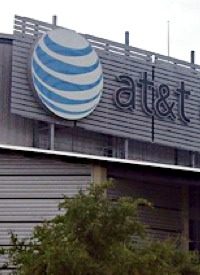
AT&T, on July 26, temporarily blocked its customers from accessing the img.4chan.org image-sharing website. Both AT&T and img.4chan.org founder Christopher “Moot” Poole say the blockage was not censorship but AT&T’s effort to protect its customers from a denial-of-service attack. Nonetheless, the incident brings net neutrality and Internet censorship back into the news.
In an online statement on July 27, AT&T described how one of its customers “was impacted by a denial-of-service attack stemming from IP addresses connected to img.4chan.org.” AT&T tried to protect this specific customer and to prevent the attack from spreading to other customers by temporarily blocking access to img.4chan.org. “This action was in no way related to the content at img.4chan.org,” AT&T stated. “Our focus was on protecting our customers from malicious traffic.” During the overnight period from July 26 to 27, AT&T determined the denial-of-service attack was no longer a threat and removed the block on img.4chan.org’s IP addresses.
Some img.4chan.org users who are skilled hackers initially interpreted the block as AT&T’s attempt to censor the website. The hackers prepared to wage war on the telecommunications giant, but site founder Poole defused the situation by explaining online what happened and partially agreeing with AT&T.
It turns out that img.4chan.org has been defending itself from a constant attack for three weeks. According to Poole, an “unintended consequence” of those protective measures was that “some Internet users received errant traffic from one of our network switches. A handful happened to be AT&T customers.” Poole says that AT&T proceeded to block traffic to img.4chan.org without first contacting website administrators. But he also partially agreed with AT&T’s assessment of the situation: “In the end, this wasn’t a sinister act of censorship, but rather a bit of a mistake and a poorly executed, disproportionate response on AT&T’s part. Whoever pulled the trigger on blackholing the site probably didn’t anticipate [nor intend] the consequences of doing so.”
Poole also saw a potential silver lining to this passing dark cloud: “We’re glad to see this short-lived debacle has prompted renewed interest and debate over net neutrality and internet censorship — two very important issues that don’t get nearly enough attention — so perhaps this was all just a blessing in disguise.” According to a July 27 online article, PC World also holds that “the appearance of censorship raises the contentious issue of network neutrality — the belief that ISPs should not be allowed to block or slow down traffic to any Website.”
Some problems of net neutrality are also shown by AT&T’s trouble with img.4chan.org. How is an Internet service provider supposed to respond when one website is causing problems for all of its customers? If federal regulations made AT&T’s actions illegal, then all of AT&T’s customers might suffer for the sake of one website that only a small portion of AT&T users would be trying to reach. While outright censorship of a website would be hard to justify short of blocking criminal or terrorist activity, preventing an ISP from protecting its customers sounds like the perverse sort of federal regulation that ends up doing more harm than good.



